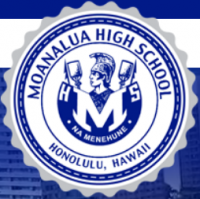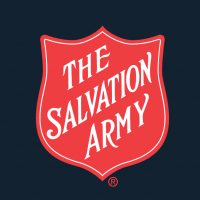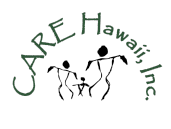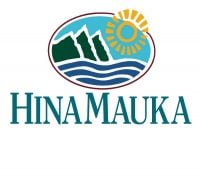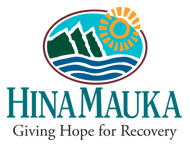YMCA of Honolulu - Moanalua High School
Drug Rehab Center in Honolulu, Hawaii
The YMCA of Honolulu - Moanalua High School is a CARF-accredited addiction treatment facility in Honolulu, Hawaii that offers comprehensive assessment and treatment services, education, and referral services to support individuals and families affected by addiction.
About
YMCA of Honolulu - Moanalua High School, situated in Honolulu, Hawaii, extends its services beyond traditional education to include after-school programs and counseling specifically designed for teens in need of behavioral health services. Emphasizing core values like caring, honesty, respect, and responsibility, this institution stands out for its comprehensive approach to fostering a supportive environment where youth can learn, grow, and improve their lives.
- Offers a wide array of programs including the A+ After School Program and Teen & Leadership Programs, tailored to meet the diverse needs of youth.
- Provides specialized counseling and behavioral health services aimed at helping teens navigate their challenges effectively.
- Engages in community outreach, offering education, awareness, and referral services to reduce the incidence of substance abuse and addiction.
Accredited by the Commission on Accreditation of Rehabilitation Facilities (CARF) and licensed by the state of Hawaii, YMCA of Honolulu - Moanalua High School is recognized for its excellence in addiction treatment and behavioral health services. With accolades from notable organizations, its commitment to quality care is evident in its structured activities, programming, and comprehensive recovery plans.
Focusing on the treatment of addiction and related behavioral issues, this facility employs a variety of methods including individual and group counseling, psychotherapy, and medication management. By addressing specific addictions and offering levels of care tailored to individual needs, YMCA of Honolulu - Moanalua High School equips teens with the tools for a healthier future.
Genders
Ages
Modality
Additional
Accreditations
SAMHSA
Conditions and Issues Treated
Levels of Care Offered
This center offers a variety of custom treatment tailored to individual recovery. Currently available are Aftercare Support, Drug Rehab, Outpatient, Residential, with additional therapies available as listed below.
An outpatient treatment program is set up to help with alcohol or drug addiction or a co-occurring disorder. The treatment must attend the treatment facility for their therapy and other programs but return home each night. The frequency of mandatory attendance decreases after much of the treatment program is complete. The treatment programs are monitored by the treatment facility and case managers who work for a judge or judge’s office. A treatment program may be performed out of a treatment facility, treatment clinic, or treatment center.
The benefits of outpatient treatment programs are many. One of the most beneficial treatment programs is that it allows treatment for clients who cannot afford or may not be able to attend treatment at a treatment facility, treatment center, or treatment clinic full-time. Another benefit of treatment programs is that they reduce crime rates because treatment allows people to treat their addiction.
Residential treatment programs are those that offer housing and meals in addition to substance abuse treatment. Rehab facilities that offer residential treatment allow patients to focus solely on recovery, in an environment totally separate from their lives. Some rehab centers specialize in short-term residential treatment (a few days to a week or two), while others solely provide treatment on a long-term basis (several weeks to months). Some offer both, and tailor treatment to the patient’s individual requirements.
Recovering drug addicts need aftercare support when they leave treatment. The support can include guidance through 12-step programs, outpatient rehabilitation programs, and support groups. Aftercare supports the individual in their desire to maintain sobriety by reducing relapse risk with positive choices.
The success of drug treatment does not end when the addict leaves the rehabilitation center. There is no such thing as a “one and done” type of rehabilitation process. Recovery is a lifelong journey that begins with treatment and continues by the addict committing to outside support groups or drug rehab programs.
When choosing a program, it is crucial to choose one that will provide long-term aftercare support. This ensures that you have the tools you need to sustain your recovery.
Therapies & Programs
Individualized Treatment is essential because it gives addicts the ability to participate in a program that meets their unique needs. An addict should work with professionals who understand what they’re going through, especially if the addict is actively using. Finding the right treatment program for an addict is difficult, but it’s even harder without communicating with those who have experience treating your specific situation.
The therapies typically involve all family members, potentially including siblings, children, and parents who play a role in their daily lives. These sessions can be essential because they address past issues that may have affected an addict or alcoholic’s recovery process. They provide support during this time when it is needed most!
A family therapy session, often called a family meeting or intervention, is a necessary process that helps loved ones of addicts see their situation in a new light. It’s also one of the most challenging things families will ever have to do when they’re facing a loved one battling addiction or alcoholism.
Group therapy sessions provide recovering addicts with a chance to cope with everyday situations that many face. Group therapy sessions are held in rehab facilities, clinics, churches or community centers that offer drug addiction treatment.
People who attend these groups are encouraged to voice their feelings and support other addicts in recovery. This helps group members strengthen their own recovery program while cheering on others who are struggling with sobriety.
Trauma therapy allows them to work through past trauma to have peace of mind and begin down the road of sobriety. The therapist will work with the individual to help them understand their past and present relationships. Patients may often believe that something is inherently wrong with them or they are unworthy of love. The therapist aims to correct these negative feelings and behaviors by helping the person realize that their actions do not reflect who they truly are.
Life skills training is beneficial for addicts in recovery because it helps them learn how to take care of themselves and improve their quality of life, which can promote feelings of purpose and motivation.
This works by teaching individuals life-enhancing skills that support positive living, including:
- Healthy lifestyle habits
- Skills to effectively manage stress
- Effective communication skills to help them get their needs met without turning to drugs or alcohol
- Money management and budgeting skills so they can continue to take care of themselves after treatment ends.
For people trying to kick their drug addiction, nutrition therapy at YMCA of Honolulu - Moanalua High School is a great tool. Nutritional deficiencies gradually creep in, and before you know it, you’re facing health problems. It helps restore balance to the body, and for many addicts, it represents the first step on the road to recovery.
Nicotine replacement therapy was developed to help people quit smoking. It does so by providing small doses of nicotine that control cravings and break smoking habits.
NRTC products like skin patches and gum deliver low-dose nicotine that prevents cravings, making the transition from smoker to non-smoker easier.
Patient Experience
Creative Arts
Creative arts therapy is not a new form of therapy. It has been practiced for over 100 years, using art as its main form of therapy. Initially used for children, over the past few decades it has been recognized as an effective treatment option for adults too. It is now practiced in psychiatric hospitals and drug rehabilitation centers worldwide.
Creative arts therapy may include painting, drawing, writing poetry or song lyrics to express oneself where words would fail to capture the true feeling. It is an outlet for personal expression in a safe environment without fear of judgment. Weaker outlets, such as writing poetry or song lyrics, may be used to explore emotions that are difficult to tackle head on in other ways. The creative process allows the patient to connect feelings and thoughts together which helps to balance their mental state.
Experiential Therapy at YMCA of Honolulu - Moanalua High School
Drug addicts can benefit from experiential therapy, which involves real-time activities to process trauma and emotions. This type of therapy is available at YMCA of Honolulu - Moanalua High School and can help reduce the need to resort to drugs and alcohol. Activities may include role-playing, use of props, and others. The individual learns to release suppressed thoughts that lead to negative feelings and embrace the present moment. Experiential therapy is beneficial in treating various disorders, including drug addiction, eating, and behavioral disorders.
Fitness Therapy
Fitness therapy is a great way to improve physical and mental health. It can be used in combination with other therapies to help people recovering from addiction. Exercise releases feel-good chemicals, helps with self-discipline, and can improve moods. Fitness therapy can help people heal physically and mentally from the damage done by addiction.
Moanalua High School Associated Centers
Discover treatment facilities under the same provider.
No items foundLearn More About Moanalua High School Centers
Additional Details
Specifics, location, and helpful extra information.
Honolulu, Hawaii 96819 Phone Number(808) 848-2494 Meta DetailsUpdated April 15, 2024
Staff Verified
Patient Reviews
There are no reviews yet. Be the first one to write one.
Honolulu, Hawaii Addiction Information
Hawaii has one of the highest rates of drug abuse in the nation. Methamphetamines and marijuana are the most common drugs involved in drug-related crimes in Hawaii. The state loses $500 million every year due to methamphetamine abuse, according to the Hawaii Meth Project. More than 1 million prescriptions for prescription drugs are given out every year.
In 2016, there were 809 drug-related deaths in Honolulu. Heroin was involved in more than half of all overdose deaths in 2016. 6.1 percent of people in Honolulu abused drugs in the past month. In 2015, there were 2,538 admissions to treatment centers for drug abuse in Honolulu. There are many drug treatment facilities in Honolulu, HI that can help you or your loved one get sober.
Treatment in Nearby Cities
- Mountain View, HI (219.3 mi.)
- Wailuku, HI (95.4 mi.)
- Hilo, HI (214.0 mi.)
- Papaikou, HI (211.1 mi.)
- Ewa Beach, HI (7.4 mi.)
Centers near YMCA of Honolulu - Moanalua High School
The facility name, logo and brand are the property and registered trademarks of YMCA of Honolulu - Moanalua High School, and are being used for identification and informational purposes only. Use of these names, logos and brands shall not imply endorsement. RehabNow.org is not affiliated with or sponsored by YMCA of Honolulu - Moanalua High School.
